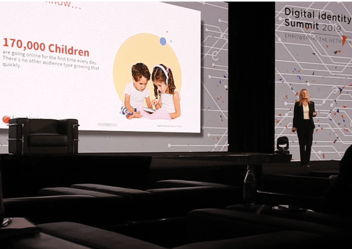
Guest Blog: How the Tech Revolution is Impacting Children with Additional Needs
I have no doubt that the digital era has had a major impact on children. At least half of all children in the UK own a tablet and concerns about online safety, cyberbullying and screen time are some of the biggest challenges that face a parent today.
But innovative technology has also brought with it vast new opportunities for children with all sorts of additional needs, breaking down some crucial barriers to independence, learning and play.
Smart devices are smarter than you thought
I use my phone for everything now, from emails to finding my way around London - I would, quite literally, be lost without it. Even so, I take for granted all of the possibilities it affords. I rarely use video calling for example, but it's invaluable for someone who is deaf, who can use it to chat with their friends and family.
There are also lots of accessibility tools pre-installed. On the iPhone these are available under Settings > General > Accessibility and include things like screen reading, speech recognition, changing the size of the text and tweaking the color or contrast.
You can also download a ton of great apps to customize accessibility even further, support tools (for example, to help children communicate), and games designed with additional needs in mind. For example, Special iApps (Recommended by the Good App Guide) develop games including Numbers, Words, Stories and Flash Cards, that can be tailored to suit the individual child. There are no adverts or other distractions and you can add in your own pictures, words and audio to focus the child's learning on particular topics.
Why does this make such a huge difference for children with additional needs?
There are a few reasons. A big one is cost - although the initial investment in a tablet isn't small, additional apps cost just a few pound a go. Compared to the hundreds or even thousands of pounds you might otherwise shell out for specialized equipment, mainstream smart devices are much more affordable. This makes valuable tools and support much more available for families than they used to be.
Secondly, mobile devices are mainstream, sleek, and cool. This may not seem important, but it has a massive impact on children with additional needs, who are as eager to fit in with their classmates as any other child. Instead of being singled out as different because of their clunky equipment with giant colorful buttons, they are the centre of attention because they get to have a tablet in class!
Independence and making friends
Wireless smart devices are far more portable than their predecessors too, so children aren't stuck at a computer in the classroom - they can take their tools and support wherever they go. They also don't need an aide following them around, giving them so much more independence and freedom. These factors just make it so much easier for children with additional needs to feel like they are part of their peer group.
For a child who needs support to communicate, a mobile device can also give them a chance to break down language barriers and connect with others. Putting a tool to express themselves directly into a child's hands means they can freely talk to friends, or tell an adult their wants and needs (e.g. if they need to go to the toilet), without having to rely on sign language which others may not be able to understand. As well as giving them independence, this breaks down the barriers to making and playing with friends.
I've also recently come across adapted console controllers, designed so that children with physical disabilities can play computer games. The charity group SpecialEffect do an amazing job of tailoring the controls to suit different needs, creating everything from eye gaze systems and voice control, to modified controllers.
I recommend that all children get a balanced play diet - a good mix of active free play, creative activities, puzzles and board games, with some screen time in moderation. So computer games can certainly be enjoyed guilt-free when balanced with those other activities.
The wonderful thing about adapting computer games like this is that the game itself doesn't change, so youngsters can play Minecraft just like their friends, or race their brother or sister in Mario Kart. It's a simple thing, but it gives them a way to interact with others by leveling the playing field.
Conclusion
We do need to be aware of the challenges that using technology may cause such as children becoming too reliant on their smart device, interacting less with the world around them, or not progressing their skills because they simply don't need to.
But if used right, I think that technology can give children with additional needs a great start in life, fighting social isolation and giving them the independence they deserve.
Dr. Amanda Gummer is a research psychologist specializing in child development and founder of Fundamentally Children.
Fundamentally Children is dedicated to helping children develop skills through play. On their website they provide independent expert advice on a range of topics including play, toys, apps, children’s tech, e-safety, child development, special needs and other parenting issues. Learn more about Amanda & Fundamentally Children here.



 Blog
Blog





 Facebook
Facebook Linkedin
Linkedin Blog
Blog


 Twitter
Twitter